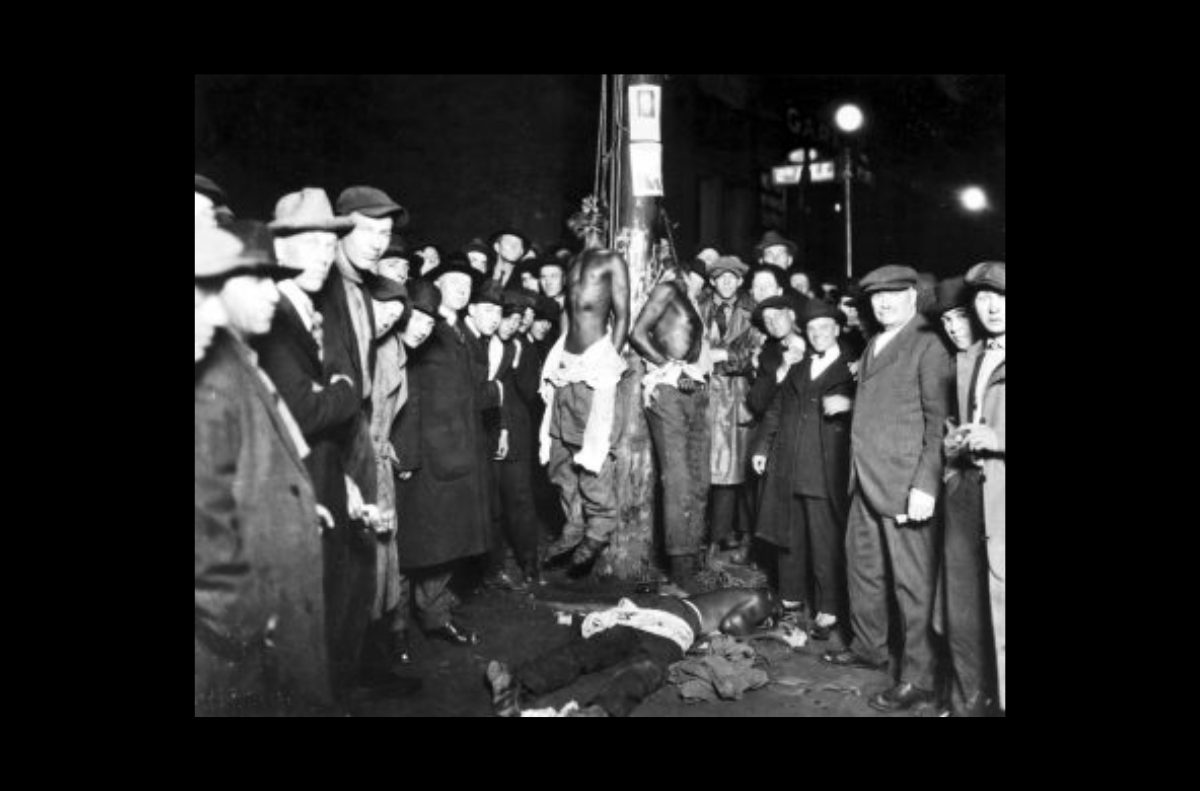Eighty-eight days ago in Minnesota, George Floyd was apparently killed by police officer Derek Chauvin. And eighteen days afterward on June 12, a black man named Max Mason was posthumously pardoned for a crime he didn’t commit.
Max Mason didn’t receive a pardon because of what happened to George Floyd eighteen days earlier in Minnesota. Max Mason received a pardon because of the anniversary of what happened to black men a hundred years ago in Minnesota.
Minnesota’s Board of Pardons pardoned Max Mason because of the hundredth anniversary of the Duluth Lynchings.
George Floyd’s death didn’t shape Max Mason’s pardon. However the injustice against Max Mason and the victims of the Duluth Lynchings shapes how many black Americans react to George Floyd’s death.
Max Mason and George Floyd are separated by a century, but they’re connected by the consequences of history—the consequences of injustice.
On June 14, 1920, Max Mason and other members of a travelling circus arrived in Duluth, Minnesota. That night, an eighteen-year-old white girl named Irene Tusken and her white boyfriend James Sullivan went to see the circus.
James Sullivan escorted Irene Tusken home, and she told her parents about her pleasant date with Sullivan at the circus before she went to sleep.
Sullivan, however, was scheduled to work with his father that night. So early in the morning, in the middle of his night shift, he told his father a much different—much darker story than Irene Tusken shared with her parents.
Sullivan said after the circus, when he was escorting Tusken home, six black labourers from the circus confronted him and Tusken behind the menagerie tent.
He said one of the black men pressed a gun to his head and they forced him and Tusken to a clump of bushes, where they robbed him and gang-raped his girlfriend so brutally, she became unconscious.
Infuriated by the story, Sullivan’s father called Duluth’s police chief and told him about the alleged crime. When the police chief heard six black men had robbed a white man and raped his white girlfriend, he immediately called a railroad yardmaster to stop the travelling circus’ train from leaving the city.
That morning, Duluth’s police officers removed every black labourer from the train. Then they brought Sullivan and Tusken to the scene. After they lined up all the black men, they asked the couple to identify the men who supposedly assaulted Tusken.
However, after several attempts, Sullivan couldn’t identify any of the perpetrators. Tusken also failed to identity the men. In fact, when police officers presented Max Mason to her, she shook her head, signalling he wasn’t one of the men who supposedly raped her.
Tusken said to the police officers she couldn’t remember the faces of the men who assaulted her. But she picked out six men, anyway, based on their size and physique. The six men were sent to jail. And the other black circus workers, including Max Mason, were allowed back on the train with the rest of the travelling circus to continue their tour in Minnesota.
Later that morning, Irene Tusken’s family doctor examined her for any sign of a sexual assault. He didn’t find any evidence of violence or a sexual assault on her body. Actually, he said to a detective he didn’t think his patient was telling the truth. He didn’t think Tusken was a victim of a sexual assault.
Nevertheless, rumours spread throughout the city that Tusken was dying from a savage sexual assault by black men.
So by the evening, up to ten-thousand angry people—more than ten-percent of the city’s population—surrounded the jail to demand mob justice against the black men.
There were about five police officers guarding the jail that evening. But they might have been able to protect the black men if the city’s public safety commissioner hadn’t given them an order instructing them not to use their guns.
The commissioner said: “I don’t want to see the blood of one white person spilled for six blacks.”
So the mob quickly overpowered the defenceless police officers and they breached the jail. Then they performed a mock trial to declare the men guilty. They refused to presume the men were innocent until proven guilty. They didn’t think that right belonged to men like that.
So they dragged three of the black men—Elias Clayton, Elmer Jackson, and Isaac McGhie—from the jail to a nearby street. They beat them up. Then they tied a noose around their necks, and hanged them on a light pole.
The killers didn’t get charged for murder. Instead, Duluth’s police department convinced James Sullivan and Irene Tusken to reconsider Max Mason as one of the rapists. So although the couple didn’t recognize Mason mere hours after the assault, a month later, they claimed they vividly remembered him as one of the rapists. Therefore Max Mason was charged and sentenced to thirty years for a crime he didn’t commit.
History shapes current events. History is always relevant.
For instance, Duluth’s current police chief was one of the biggest supporters of Max Mason’s posthumous pardon. His name is Mike Tusken. His great-aunt is Irene Tusken.
History is always relevant.
If black Americans—if black Minnesotans—hadn’t been forced to swallow a bitter history, many of them wouldn’t be tempted by bitterness today.
And since injustices and mob violence from a hundred years ago still shape our society today, how will the injustices and mob violence from this year shape our society a hundred years from now?
I don’t know. But the injustices of yesterday are relevant for today, and the injustices of today are relevant for tomorrow.

